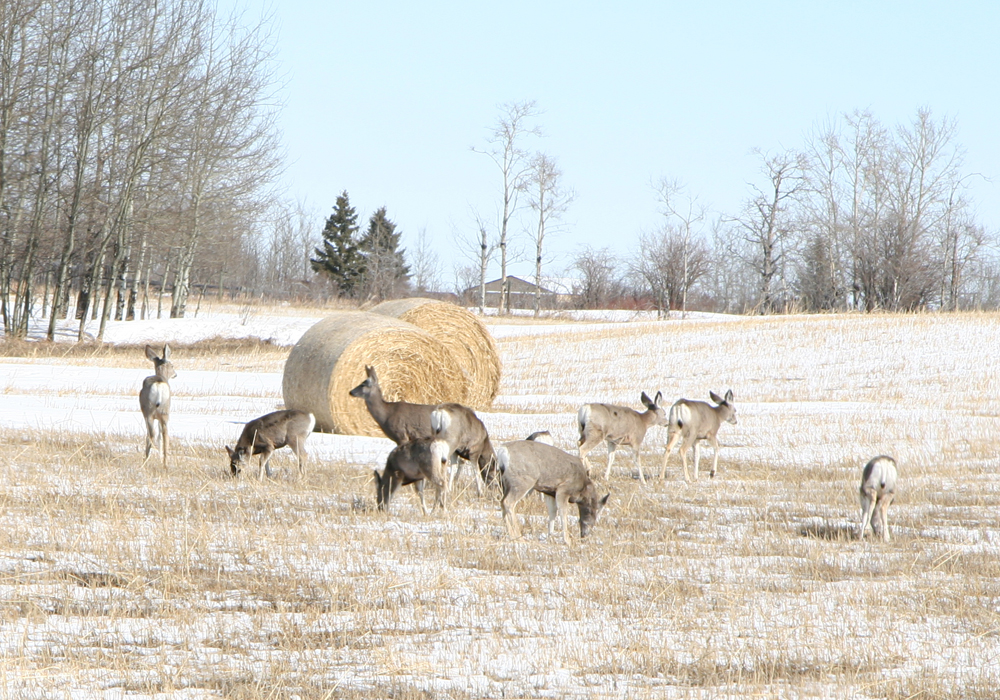Rural municipal councillors in Saskatchewan say the increasing populations of mule deer, moose and elk are causing concern and they want the government to do more to help.
Several resolutions passed at the Saskatchewan Association of Rural Municipalities annual convention called for more hunting.
Motions from the east-central and northwestern parts of the province called for a regular season for mule deer and increased draw limits in 2022.
Delegates asked for a longer elk hunting season in zones with high populations to better manage the numbers and increase the overall health of the herds.
Read Also

Saskatchewan throne speech promises strong economy
Saskatchewan’s legislative agenda for the coming year will focus on meeting the challenges of new world trading relationships, said the speech from the throne.
They want unfilled elk tags allowed in feed storage yards in January and February, after the typical hunting season.
Another motion called for moose licences to be reinstated in Wildlife Management Zone 15 in the province’s southeast.
Lorne Ball from the RM of Clayton said longer hunting seasons are a good idea.
“There’s herds of 200 lots of times show up and are dispersed in one day because all the hunters have seen where they’re coming,” he said. “The success rate is low of actual kills.
“I feel if we had a longer season, we would go out and the herds wouldn’t get as big and we would get an adequate harvest of the elk.”
Dallas Toles from the RM of Cymri asked during the bearpit session with the provincial cabinet what the government was doing to manage chronic wasting disease, the fatal prion disease that affects the ungulate species.
He said the crown owns the wildlife in the province and CWD is growing. He suggested the new trespassing law will mean fewer hunters in future.
Environment minister Warren Kaeding said the province is working with partners at the University of Saskatchewan, the Vaccine Infectious Disease Organization, the University of Calgary, the University of Alberta and the Alberta government on finding a vaccine.
VIDO chief executive officer Volker Gerdts, who also addressed the convention, said the organization had the world’s first vaccine candidate for CWD and tested it on elk in its facility for 18 months.
“Unfortunately, the vaccine that we had designed didn’t work as well as we wanted it to,” he said. “It still gave a good response, but it didn’t give the wow effect.”
He said VIDO researchers are working on a next generation vaccine for chronic wasting disease in partnership with outfitters and the Safari Club.
Gerdts said the agriculture ministry has funded a lot of CWD research but if people want more, they have to apply pressure.
“It’s really the livestock producers, it’s the farmers, it’s the youth, the business owners who can drive that,” he told Toles.
He also said that a proper diagnostic test should also be developed because there is no blood test to recognize infected animals. As well, more awareness among hunters is also important.
“We need to be able to bring our vaccines with bait to where the wildlife is, so that it doesn’t spread into our farmed herds. We need to have government programs that allow us to reimburse you for the losses of your animals when you farm these animals and be able to repopulate your herds. Lastly, I think it’s the general awareness that all of us together need to understand that these diseases are important.”
Gerdts said the “fire insurance mentality” doesn’t usually apply to disease but it should so that everyone is prepared when the next disease, whatever the source, comes along.
















